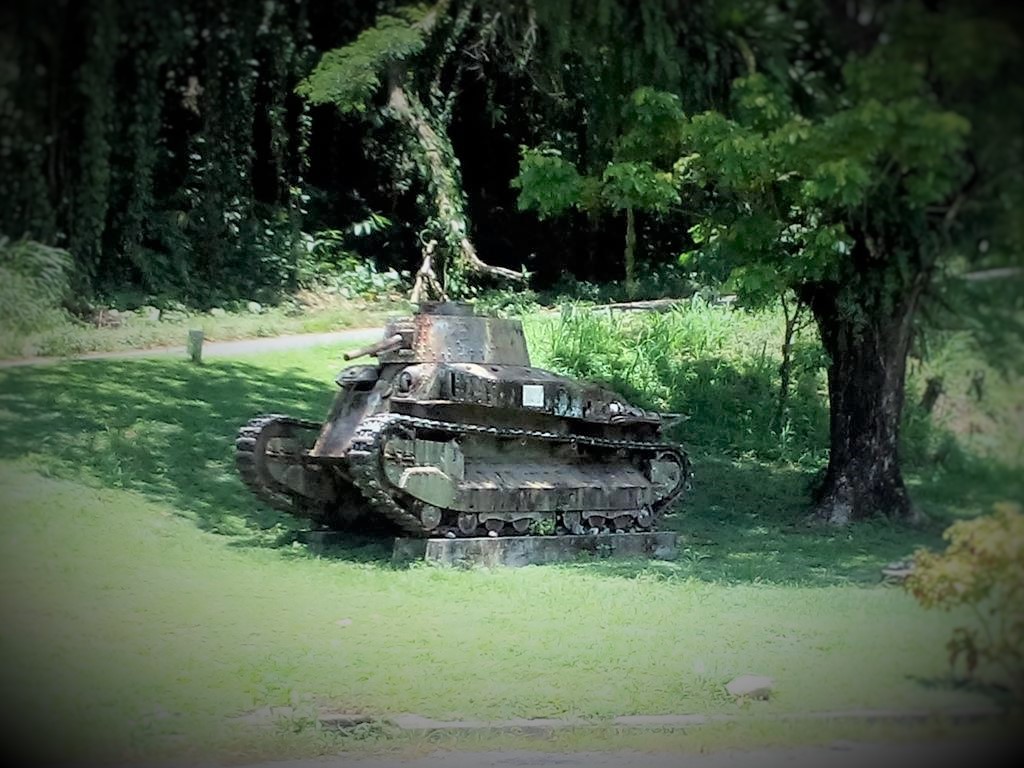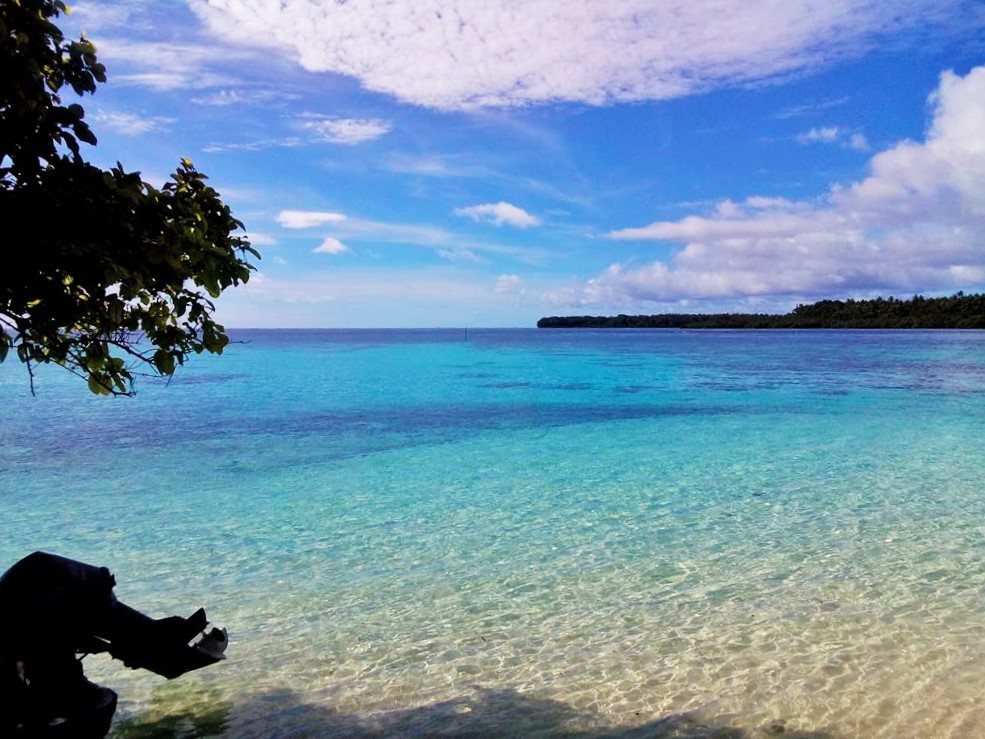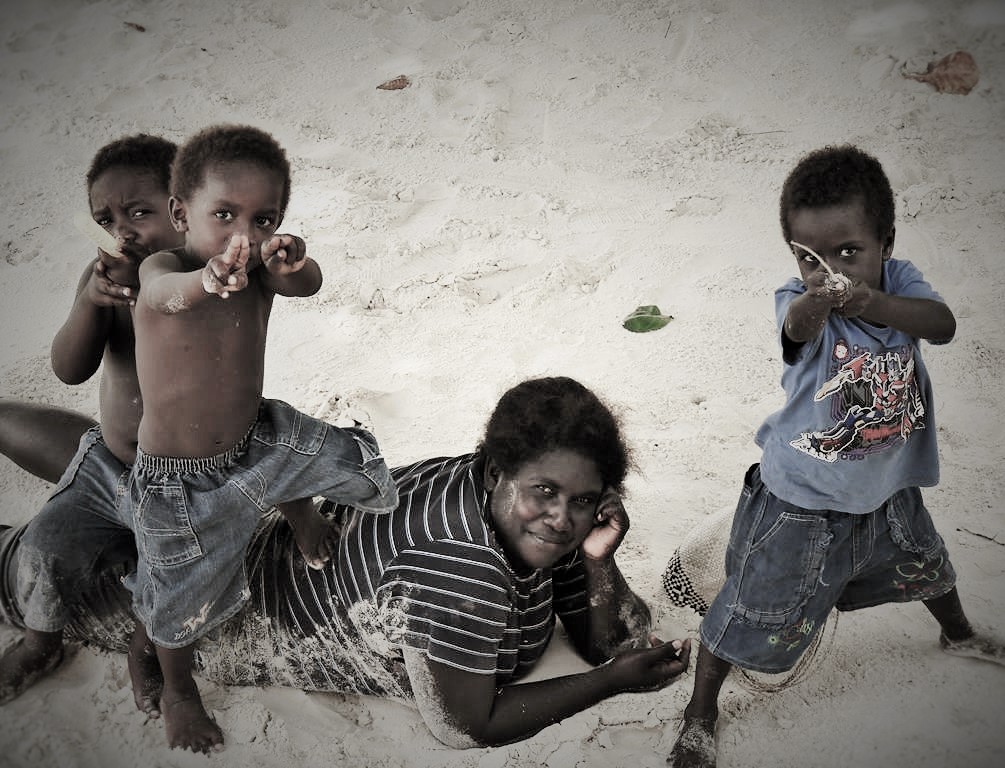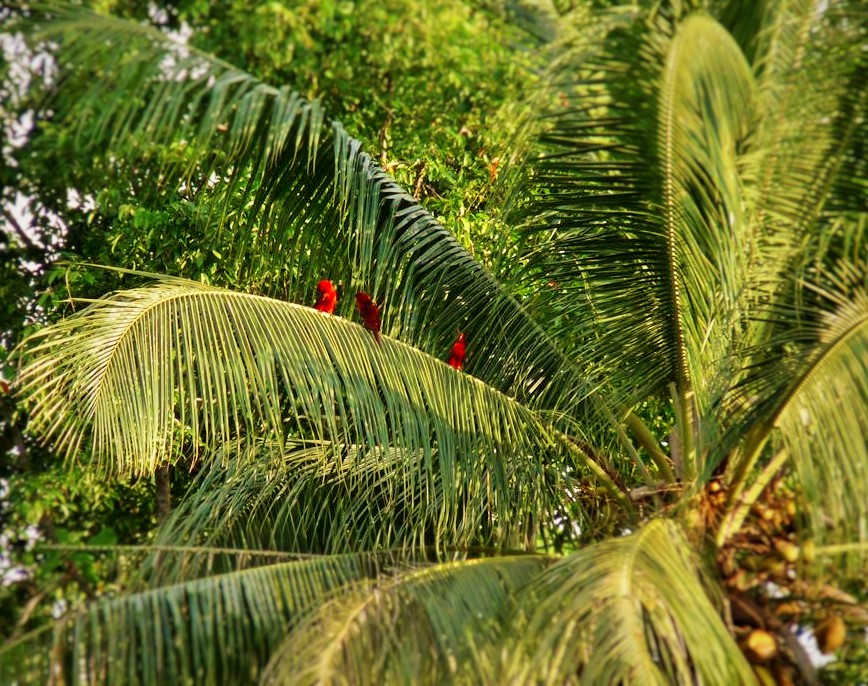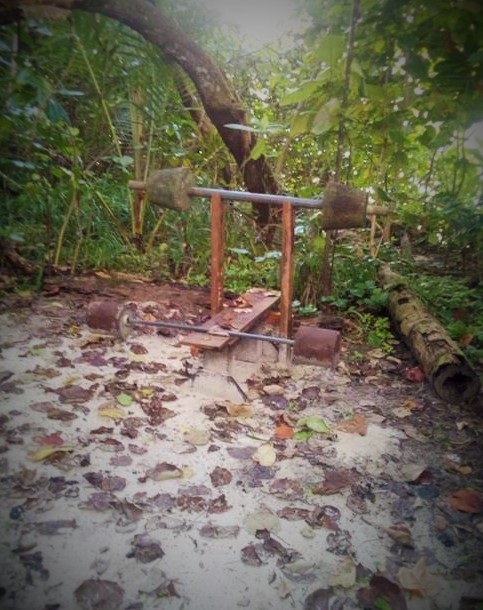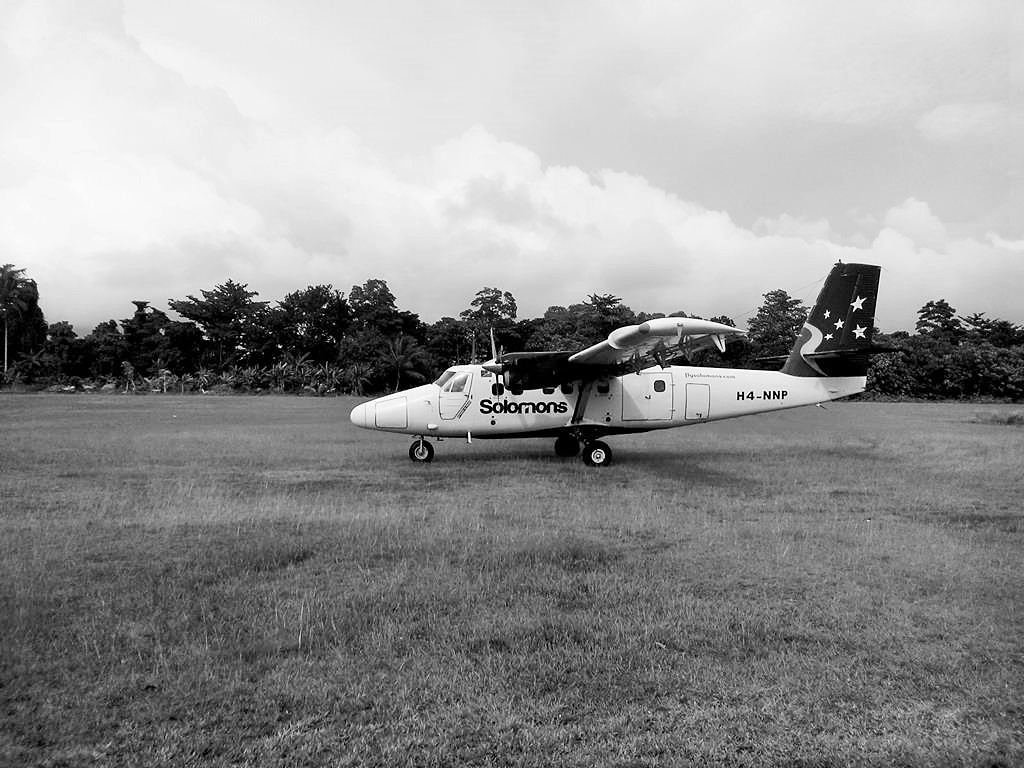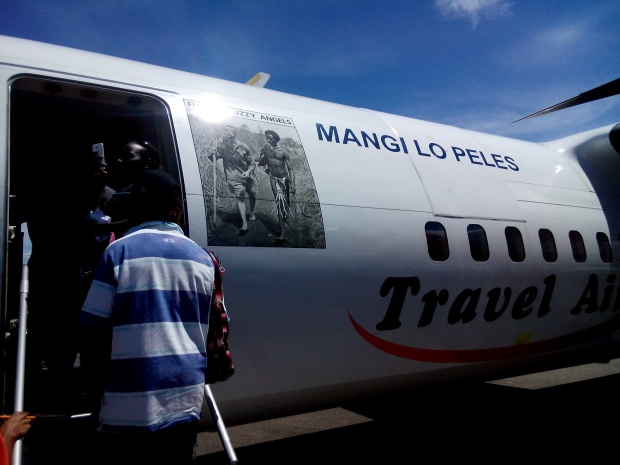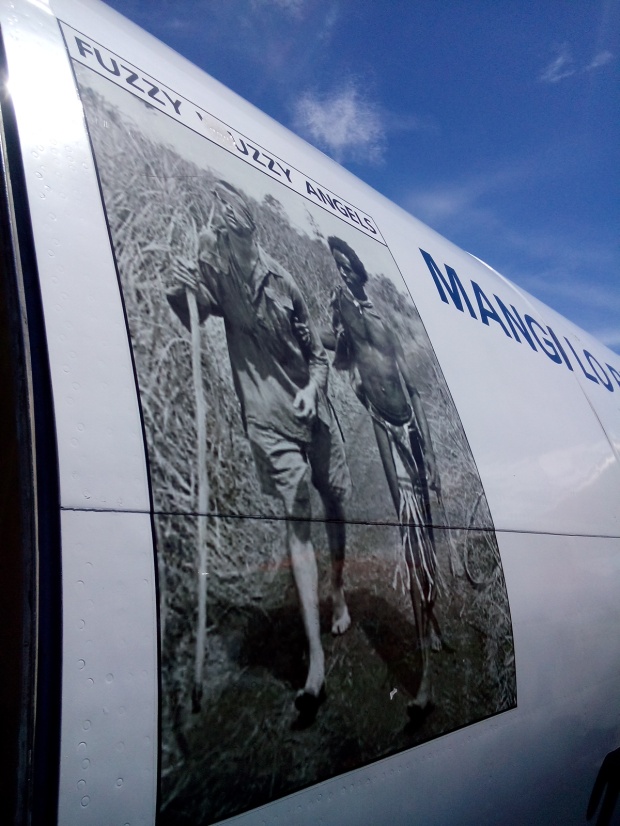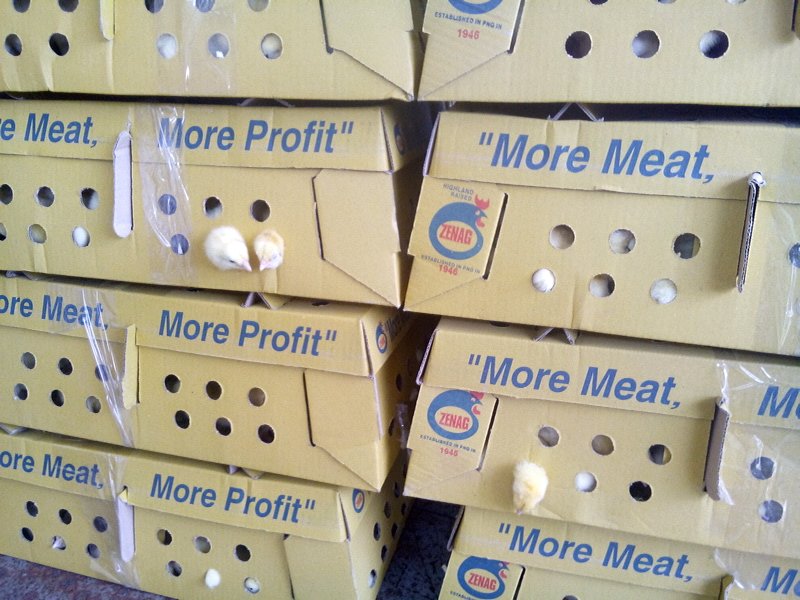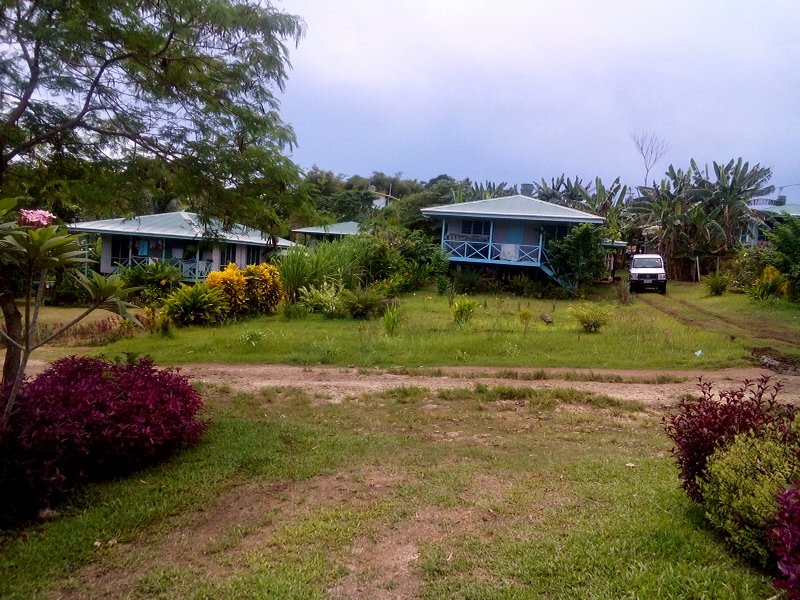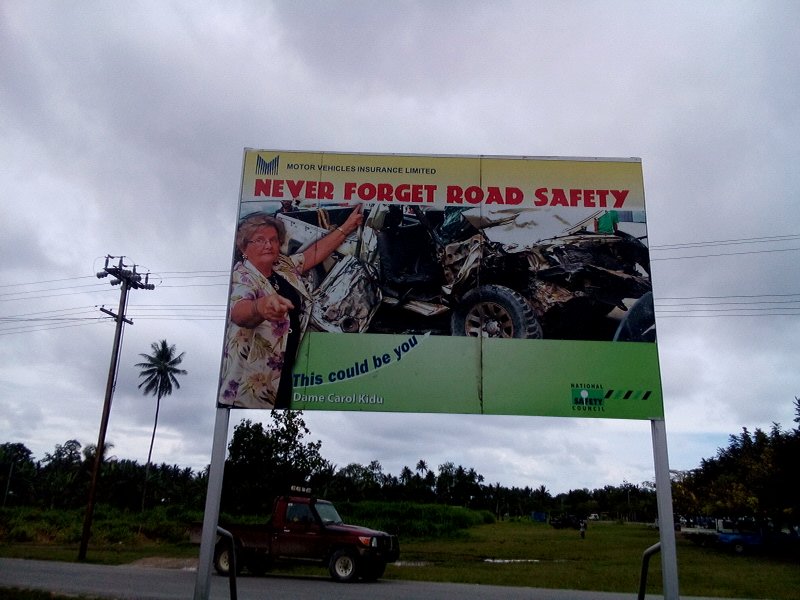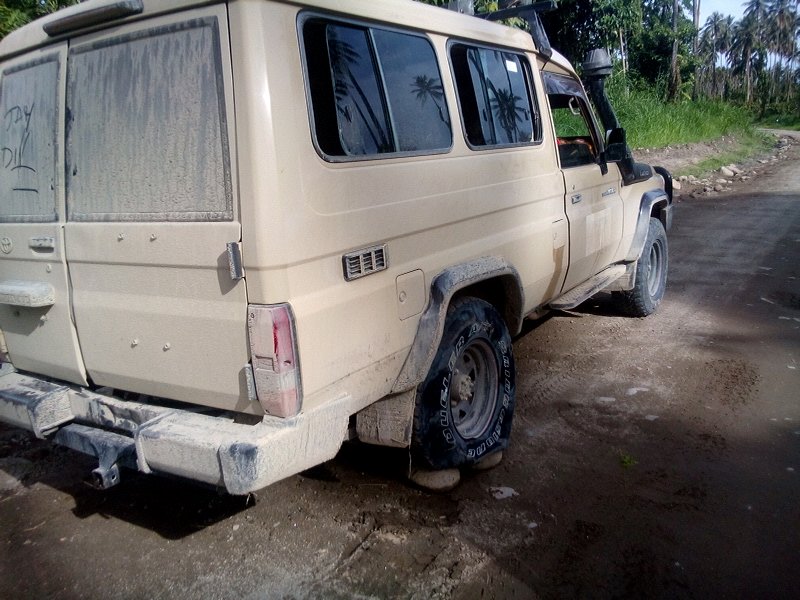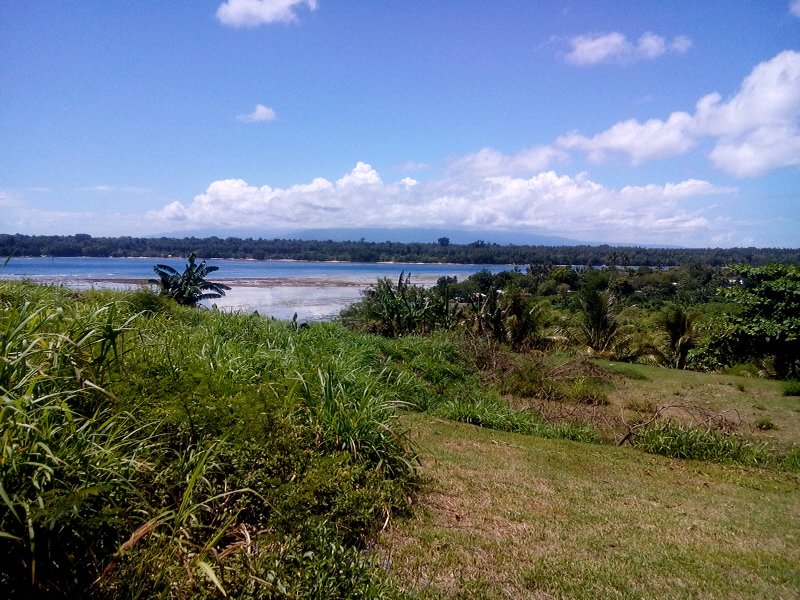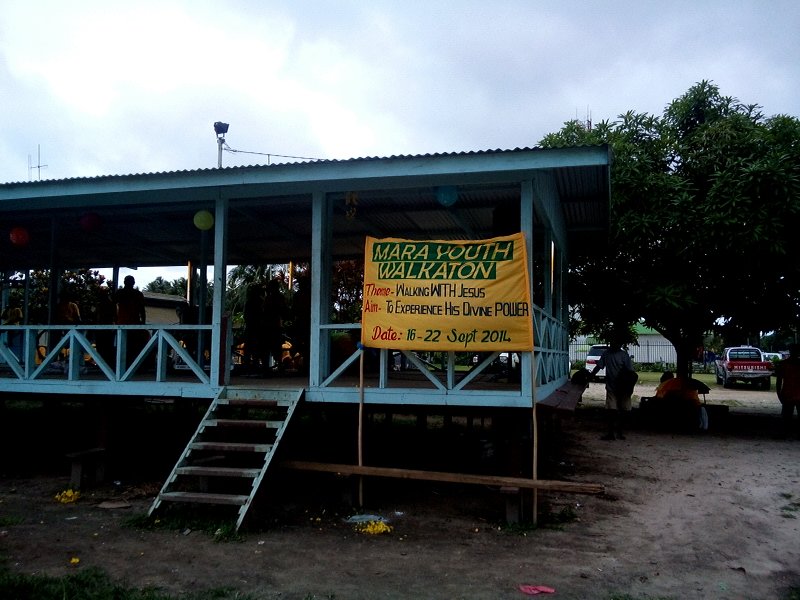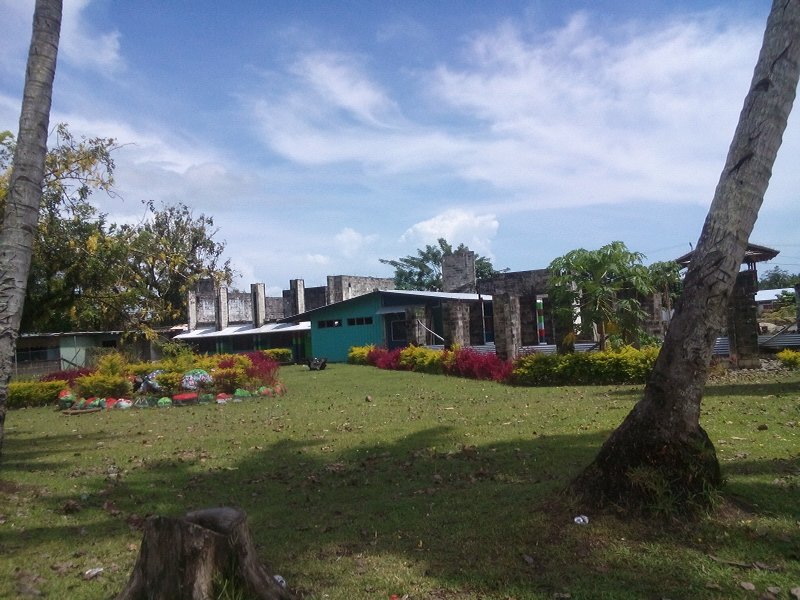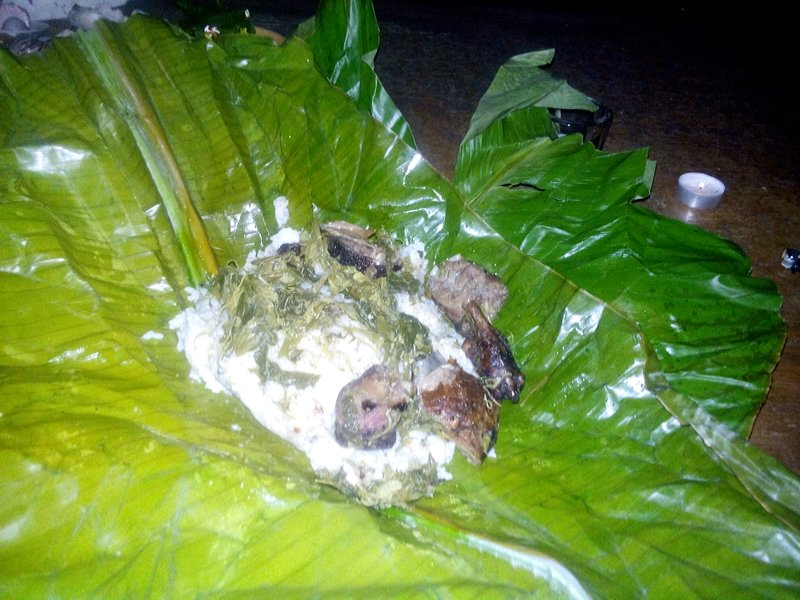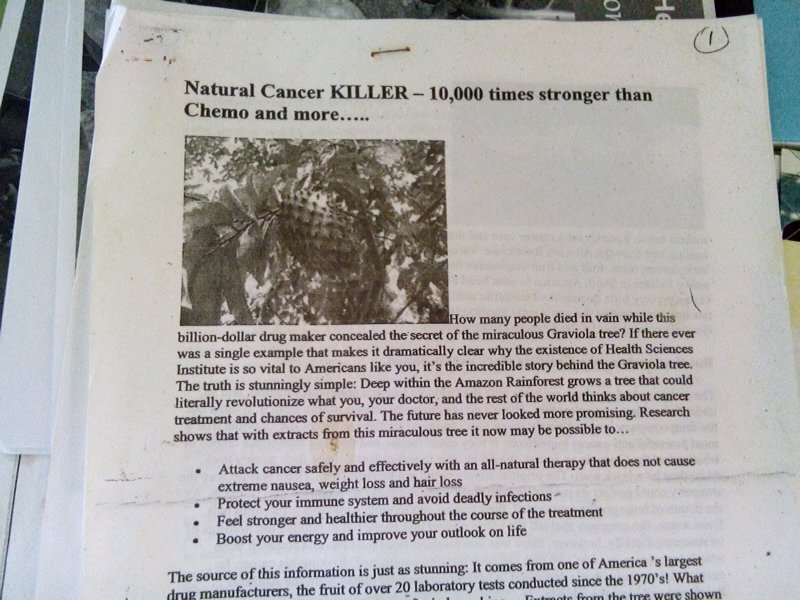Most people enter Papua New Guinea by plane through Port Moresby. The only official land border is with Indonesia at Vanimo/Jayapura. Locals traditionally also travel by boat between Bougainville and the Solomon Islands and between Daru and the Torres Straight Islands that are occupied by Australia. However, those two are not official border crossings.
I had read about travelers successfully crossing between the Solomons and Bougainville so I planned my trip that way. It’d better be successful because flying from Bougainville through Moresby to Honiara is otherwise ridiculously expensive. Still there were many variables – where to get immigration stamps (or if i should get an exit stamp from PNG at all), how to find a ride across, how safe it would be…
On the Internet I found out that there were immigration offices in Buka and Arawa (noonsite.com – for sailors) but of course tracking down the immigration officer wouldn’t be easy – apparently I’d have to go around the streets and ask people “Where is Nancy?” If Nancy was not in Buka, then I’d have to travel to Arawa and look for her there (and hope she won’t be traveling back to Buka at the same time).
I also found out that there are flights from both Choiseul and Shortland – the two islands of the Solomons that are closest to Bougainville – on to Gizo and Honiara (the two biggest towns of the Solomon Islands). At least according to the Solomon Airlines website.
The 2007 edition of the Lonely Planet had information about this border crossing but it was not in the 2012 edition anymore. Did this mean that the authorities of one or both countries were not happy about foreign travelers using this route and had asked for the information to be removed? The central government of PNG is certainly not encouraging people to use this route. During the ten year crisis on Bougainville this route was the lifeline for many Bougainvilleans – the PNG army established a blockade that left Bougainville without any supplies, health care, education whatsoever. Everything came from the Solomons. Many Bougainvilleans even moved to live on Choiseul and the PNG army even went there to harass them, invading Solomon Islands territory.
In 2012 Tony Wheeler, LP’s founder traveled the same route from the Solomons to Bougainville and posted about it on his blog. Maybe the PNG government had asked LP not to advertise this “illegal” border crossing and Tony Wheeler was just making a statement about how illegal it actually was. Who knows…
Then there were some Slovakians on a forum who said they got arrested on arrival in Choiseul by the RAMSI police in the Solomon Islands. The crossing would normally involve getting to Shortland or Choiseul first, by banana boat, and then flying or boating to Gizo where there’s an immigration office to get a stamp. So basically I would be “illegal” in the Solomon Islands until I get to Gizo but this kind of arrangement is not too unusual. In Chile and Argentina I’ve had to get stamps way before or after the border. The RAMSI police are foreign (mostly white Australian) policemen who’ve been in the Solomon Islands to restore peace after the ethnic tensions some years ago. They have authority and guns (and I’m sure the ones on Choiseul were also bored). On the other hand, no one had any problems with the Solomon Islands policemen and they were all happy to see travelers coming this way. I certainly didn’t want to run into the Australian policemen. On their website I read that they had pulled out of Shortland but I didn’t know if there were any still in Choiseul.
Then, to make things more complicated, some years ago an American was caught smuggling fake money through that border. He was bringing in a suitcase of newly printed Bougainvillean kinas, which is a currency created by Bougainvillean leader, banker, entrepreneur and nutjob Noah Musingku (who markets himself as King David Peii II). He created a financial pyramid and even his own central bank and currency some years ago.
He was able to travel to his ancestral village of Tonu, where he established his bank headquarters in an old cattle farm owned by the paramount chief. This, he said, was the manger from which would issue salvation of the world.
http://en.m.wikipedia.org/wiki/U-Vistract
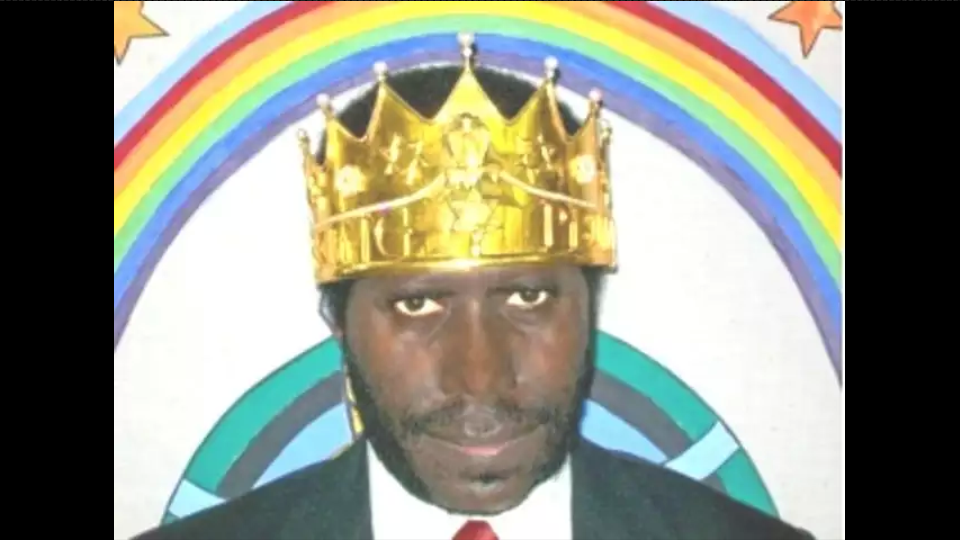
His Majesty the King himself. I didn't have a chance to meet him. The picture is from http://www.bougainville-copper.eu
It all ended up with him stealing a lot of people’s money and then hiring six Fijian mercenaries to train his army, promising them one million kina each. Soon they found out they weren’t getting any money from the guy either, and five of them abandoned him. One actually stayed in southwestern Bougainville and still lives there to this day. They say the only reason Musingku is still alive is that people still hope they will on day get something back from him. To be on the safe side, he is said to never leave the area of his own house these days. So, yes, although the currency that the American was smuggling was not really real and not really worth much, the fact that he was caught wouldn’t seem to make my task of crossing the border any easier.
And then everyone was telling me how dangerous Bougainville was so it wouldn’t be a place to hang around and wait for a boat to show up and take me to somewhere.
This was all before I arrived.
In the end the most important thing was networking. I couchsurfed with Ute and Andre – German development workers in Buka – who introduced me to Moniek – a Kiwi development worker – who had been to the Solomons this way. Moniek gave me the number of Gerald who lives in Arawa and had traveled to the Solomons this way. Gerald asked around and sent me a message that a Philip was going to Choiseul and Gizo the following week. I made my way to Arawa, met Philip, discussed the issue and had to wait until the day he was going to leave. Arawa is a friendly town and I was hanging out with Kerstin from Austria and her friends.
I left Arawa a day later because Philip had to organize his daughter’s graduation party. “I’m not going anywhere before my daughter is completely happy,” he said. Fair enough. I wasn’t in too much of a hurry anyway although I was two days past my exit stamp datr.
We finally left on a Friday. The crossing to Choiseul was nothing crazy, in fact the ride was much smoother than most banana boat rides I had taken in PNG. Philip had three boats going that day – two of them had buyers waiting for them in the Solomons. Apparently banana boats and engines are much cheaper in PNG and it’s a good business bringing them over the border.
The main town on Choiseul is called Taro and is on a small island offshore. On an adjacent small island Philip had some property where we made a landing early in the afternoon. I thought we’d continue to Gizo the same day but it turned out some of his boys there had been drinking and making trouble so he had to deal with that first. Things around here don’t happen quickly so by the time the issue was addressed it was Saturday. Philip is a Seventh Day Adventist so he doesn’t do much on Saturdays. During his relaxation on Saturday he had decided that he was not going to Gizo and he’d go to Honiara by plane instead to see one of his six wives. So, early on Sunday morning we were at the airport in Taro to meet the two planes – one would bring Philip to Honiara and the other would bring me to Gizo. The Gizo flight was however full so I would have to wait till the next day. One more day of snorkeling and snoozing in a hammock on a beautiful beach? Bring it on!
I had no cash on me and I had paid Philip to bring me to Gizo so he very kindly paid for my flight to Gizo and even gave me enough Solomon dollars for me to pay for the airport transfer boat from the airport to Gizo and to buy some biscuits in case I’d go hungry.
On Monday morning I was brought to the airport by one of Philip’s boys and had to collect my ticket first. It had been reserved under the name White Man in the reservation system (a school notebook).
At the airport there were two other white men, obviously Australians, who were going to fly that day. When we landed in Gizo they quickly put on their uniforms with name tags that said RAMSI – the same Australian policemen I’d been trying to avoid were right there now chatting to me and asking me what I’d been doing in Choiseul. I didn’t lie and they didn’t seem to care: “What an adventure!”
In Gizo they even escorted me to the bank so I could get money and to the telecom company so I could buy a Sim card to call my couchsurfing host Warwick. Later that day I found the immigration office. Rose, who mans (or shall I say womans) it, gave me a long hard look. She was strict but understanding. She asked for my flight out of the Solomons and a copy of my passport. I had prepared a fake flight ticket to Vanuatu for two weeks later but I needed to buy one anyway so a trip to the Solomon Airlines office produced a real ticket for the exact same flight I had the fake one for. I made a copy for Rose and she gave me permission to stay in the country until exactly the day of my flight. Did I mention she was strict? When I was leaving her office, she quickly said the permit was extendable, in case I changed my plans. Or got malaria or was bitten, but not eaten, by a crocodile. The Solomons have plenty of crocodiles since the UN disarmed the people after their conflict some years ago. Now people don’t have guns anymore to shoot the crocodiles. But that’s another story…
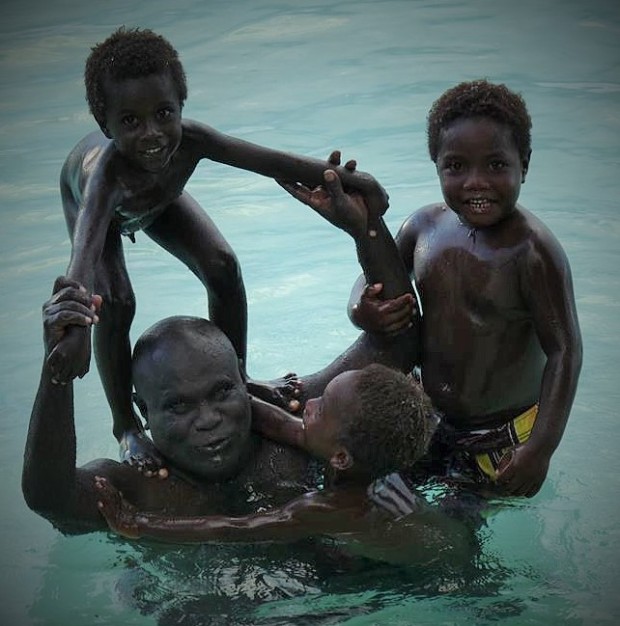
Philip with some of his kids/grandkids/nephews. Philip wished Bougainvilleans had had rehabilitation programmes soon after the war was over. "because we are all confused in here", he said pointing a finger at his head.
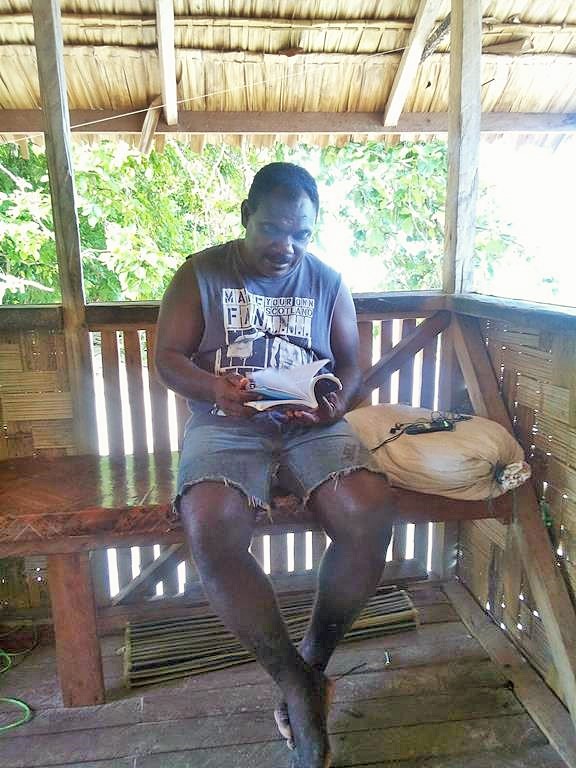
Ben is one of the many people working for Philip. He spent the entire three days I was there reading my Lonely Planet for Papua New Guinea and the Solomon Islands. He was fascinated by it. Another guy I spent a lot of time with had starred in the Mr Pip movie and we watched it together on my computer. It was the first time he saw the film - the producers never sent a copy to the Bougainvilleans who starred in it, he said.
PRACTICAL INFORMATION
This file can be imported into Google Earth.
Here’s what I’ve found out on the ground that might be helpful.
First, Bougainville is not any more dangerous than anywhere else. In fact I found it quite safe and friendly.
PMVs run from Kokopau, across the passage from Buka every day (except maybe Sunday) around noon (from 10 am) for 50 kina to Arawa. Back from Arawa to Buka they leave around 4 am. From Arawa there should be regular PMVs to Buin in the south, two leaving very early on Saturday for the market in Buin.
There are two ways to make the crossing. 1) As I did, on a banana boat from Arawa (they might actually depart from Kieta or Koromira – one hour drive to the south), to Choiseul. You might get a boat from Bougainville all the way to Gizo this way, or from Choiseul (Taro) you can fly to Gizo. The airport is called Choiseul Bay. 2) From Buin take a short truck ride to Kangu beach from where you can see Shortland. They say at low tide you can almost walk to Shortland. The “almost” part is essential so you’ll need a boat. From Shortland some people have managed to find banana boats going to Gizo but apparently it involves rough seas. Otherwise you can fly from Balalae airport (on a nearby island) to Gizo. Right now there’s one flight on Thursdays, but I’d not count on the plane coming 100%. There’s a smaller market in Buin on Thursdays for the Seventh Day Adventists (the big market is on Saturday). If some Shortland Islanders come to the market, it might be possible to find a passage with them. The flight is in the afternoon, so they can drop you off directly at the airport island to catch it. It’s a half hour ride so it shouldn’t cost too much. I’d first call Solomon Airlines to make sure the plane is actually coming, otherwise it might be a week long wait until the next plane. These flights were not operated at all last year but I assume they go now since they sell tickets online. I heard of someone doing it this way and buying a ticket directly from the pilot. Australian dollars might be good to have. The ticket can also be bought online of course.
The banks in Bougainville can sell you Solomon dollars but only if they have any (they didn’t when I was there).
Shortland island is supposedly paradise on earth so spending a few days there shouldn’t be too bad. If you look at the blue lagoons around Shortland on Google Earth, it looks just like a place that would be great for swimming and snorkeling. I’m not sure about the crocodile situation.
If there are no flights, you will have to find a boat to take you from Shortland to Gizo but those are irregular. I heard of people who waited for many days and finally gave up. Also, I met a Solomon Islander nun in Arawa who traveled this way but she knew in advance about a boat that was leaving on a certain day. She paid 500 kina for it, which is more than the online price for the flight.
When you arrive in Choiseul or Shortland you should report to the police to announce you are in the Solomon Islands. They will write down your name and passport number (on a random piece of paper) just to know about you “in case your boat sinks on the way to Gizo” 🙂 There were no Australian policemen in Choiseul when I visited the police station.
The boats apparently do sink. It’s a long passage from Shortland /Choiseul to Gizo and they sometimes carry too much cargo and the open sea there can get rough. Sometimes apparently they also miscalculate how much fuel they need or the engine might break. Forget about life jackets. Philip, who I traveled with, has done Arawa – Choiseul – Gizo for many years and seems to be very experienced. They even had paddles in the boat (I guess just in case). He has a business in Arawa (ask for him at the Green House or Arawai guesthouse). He also has property and a store on Choiseul (on a small island next to the island of Taro where the town and the police station is) and a house in Gizo. It would be best to give him a call and ask when he’s planning to go. Apparently he goes every week or so to run his business. His number is +675 733 70 671 in PNG and +677 7745763 in the Solomons (I asked his permission to publish it) but don’t expect him to wait for you especially or to depart and arrive at the exact days he tells you. Of course he’ll be attending his business and you’ll be tagging along. It’s a lot of fun, just don’t be on a tight schedule.
Philip charges 200 kina from Arawa to Choiseul or 4-500 kina from Arawa to Gizo when he’s going anyway. As for the ride from Buin (Kangu beach) to Shortland, if you manage to get a ride with the people from the market, it should be cheap (I imagine 20-40 kina). If money’s not an issue, you can just show up and someone will probably be more than happy if you chartered their boat, both from Arawa, Buin, Choiseul or Shortland or whatever.
If coming from the Solomons (exit stamp in Gizo or Noro) it would probably be safest (and cheapest) to fly to Shortland (Balalae airport) then find a passage to Buin and then PMVs onwards on Bougainville.
On Bougainville there are three customs offices that can stamp you in or out. I posted the addresses on Wikitravel.org. The one in Buin does not have a stamp but if coming from the Solomons, I would first report there. If coming from Bougainville, I’d first try in Buka. I never met Nancy but I met John who was very friendly and gave me a stamp for a few days later (when my visa was actually expiring and when I was planning – or hoping – to be able to leave). I actually left two days past the date on the stamp (Philip’s daughter had her graduation so we got delayed, and the weather had been kind of bad so it was probably a good thing) but no one seemed to care.
Of course any of this information can change without any notice. Right now the situation in Bougainville seems stable but who knows. An independence referendum might be held in the next years and the situation might dramatically change (for the better or for the worse). Once in Bougainville, if you have any concerns about safety, try talking to the New Zealand policemen in Arawa or Buka who are only advisors and will know best what the security situation is.
Apparently no more than 40 tourists visit Bougainville every year, so people will be very glad to see you.
Wanbel Haus in Arawa is a friendly Catholic compound where people are helpful.
If you see white people anywhere on Bougainville, they are probably development workers (unless they are businessmen) and they will probably be happy to help you with anything or give you contacts. Everyone knows each other.
I’ve crossed many borders so far and this one is by far my favorite. Actually it feels like there’s no border – that’s the beauty of it.
